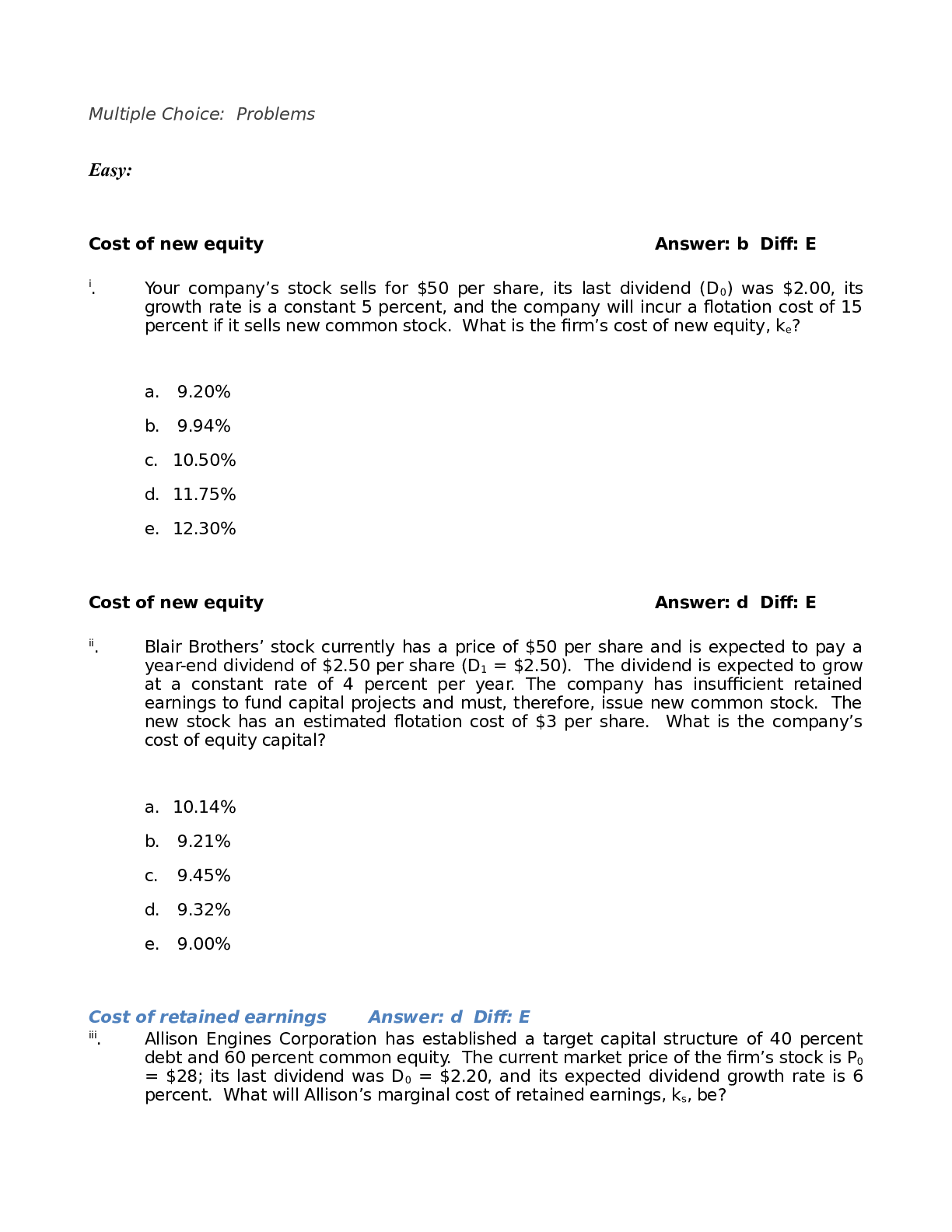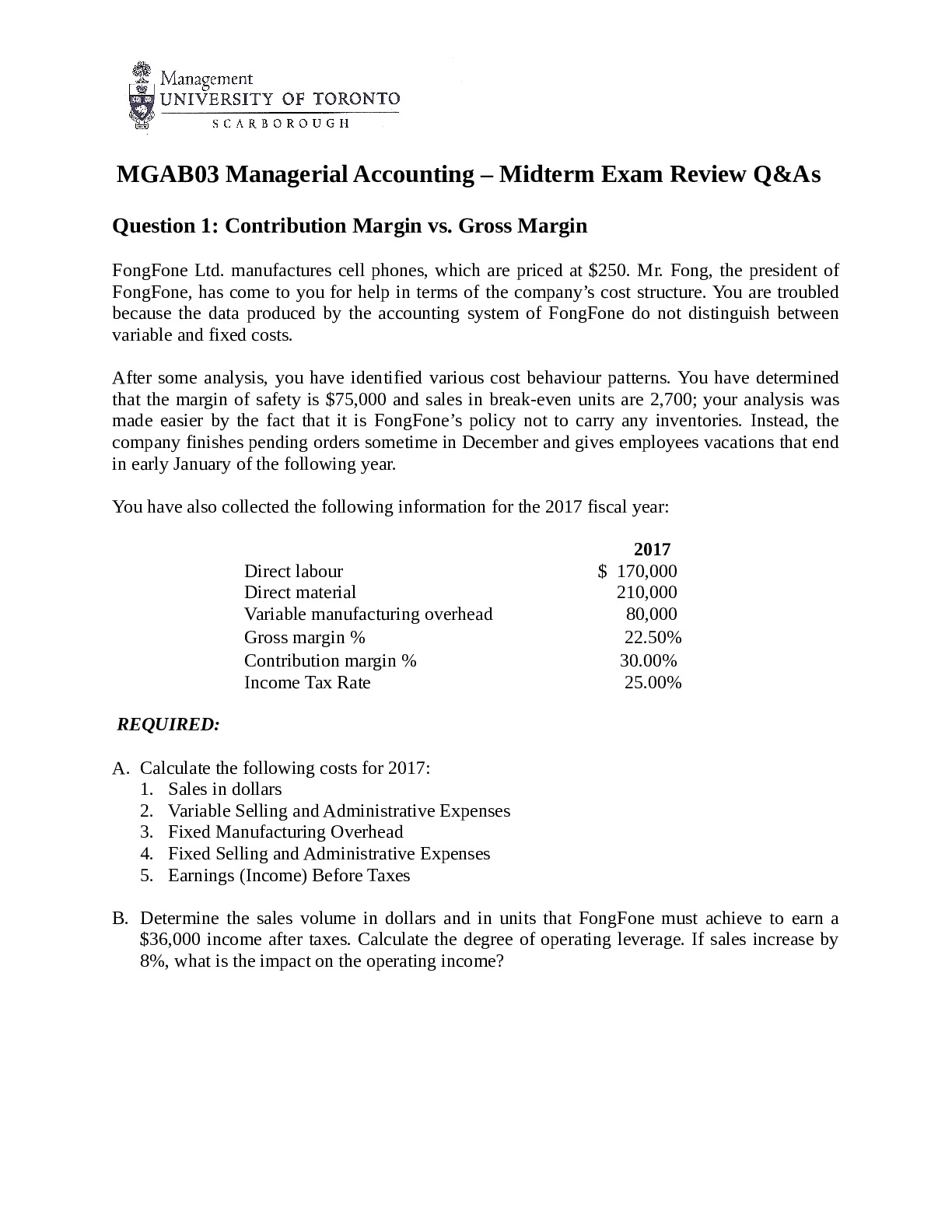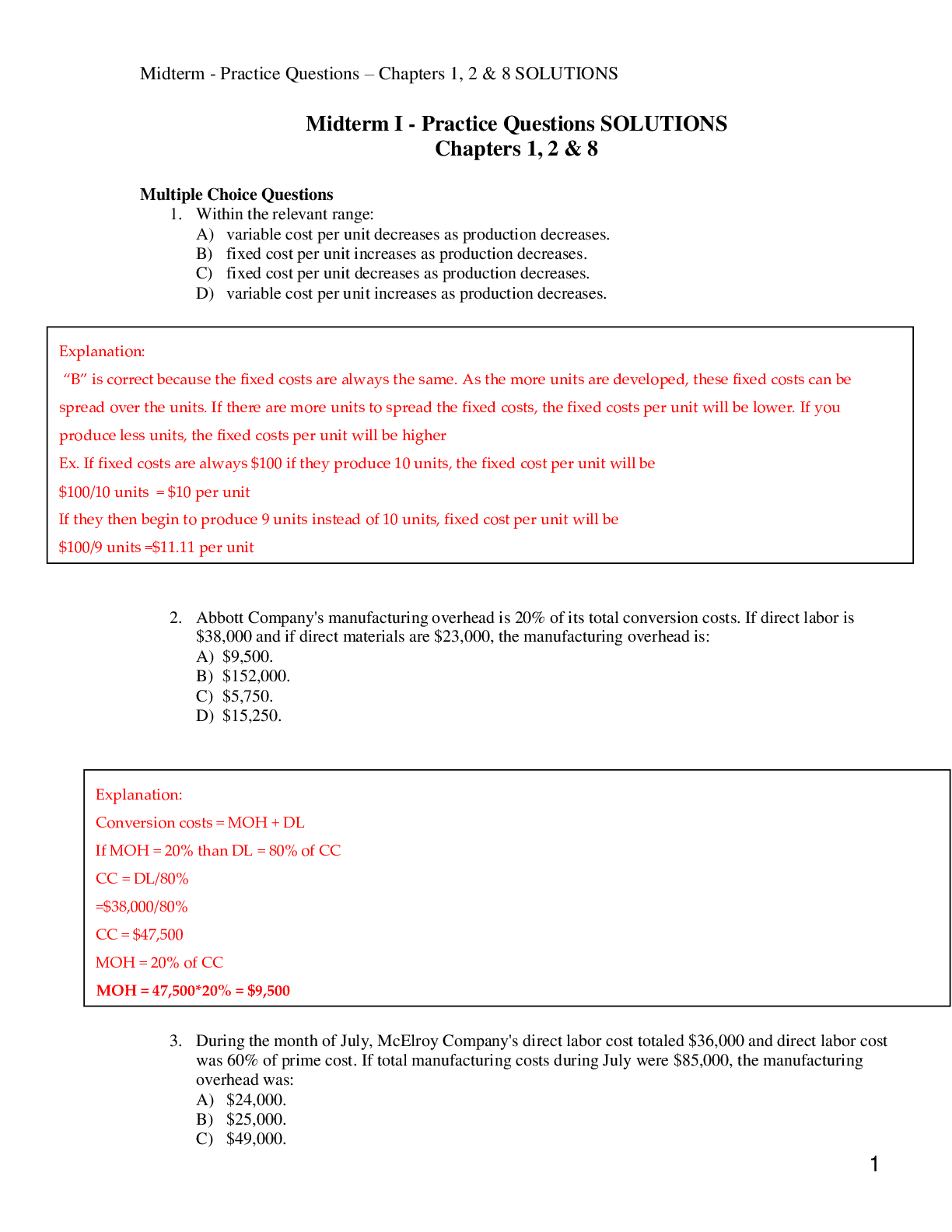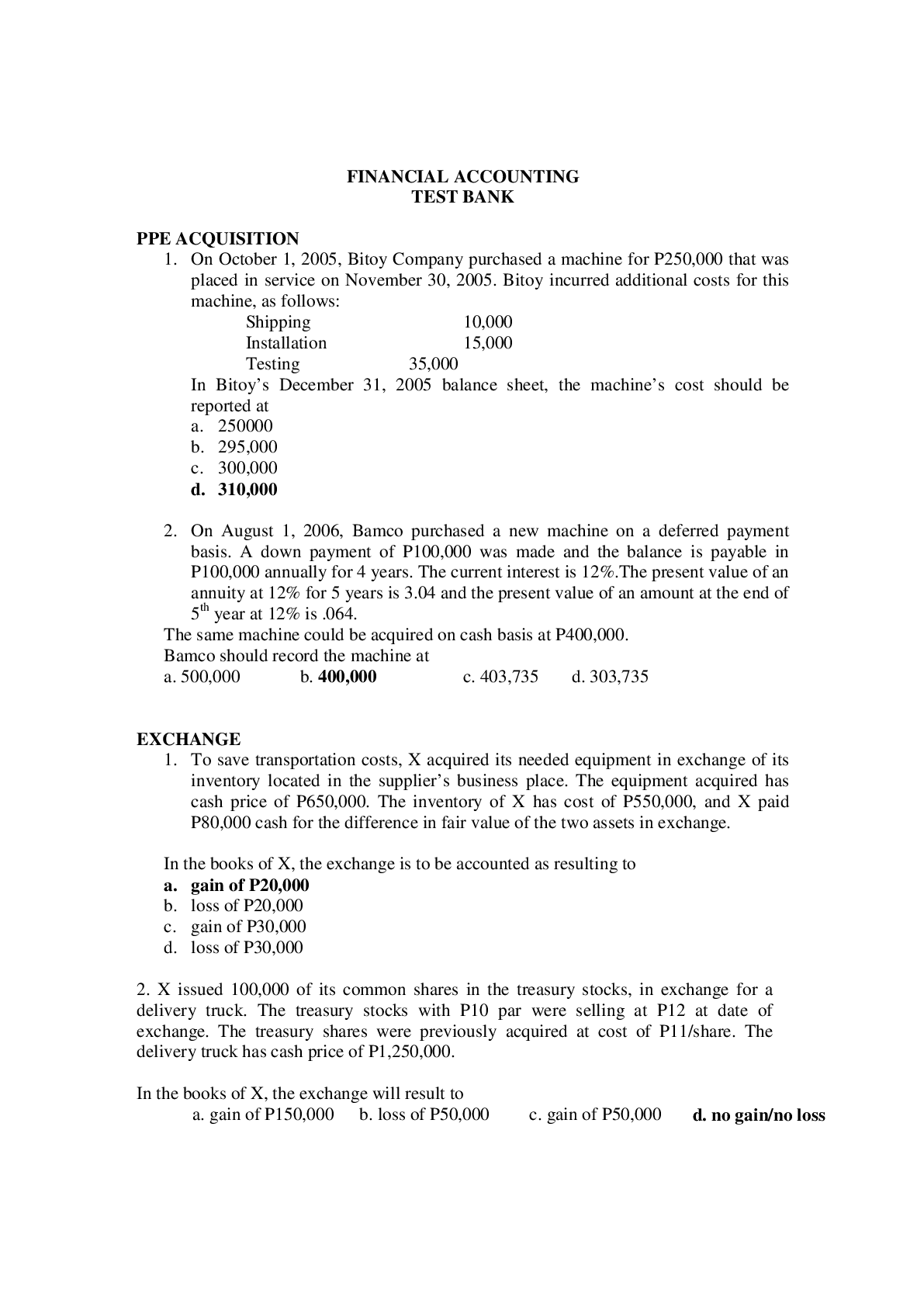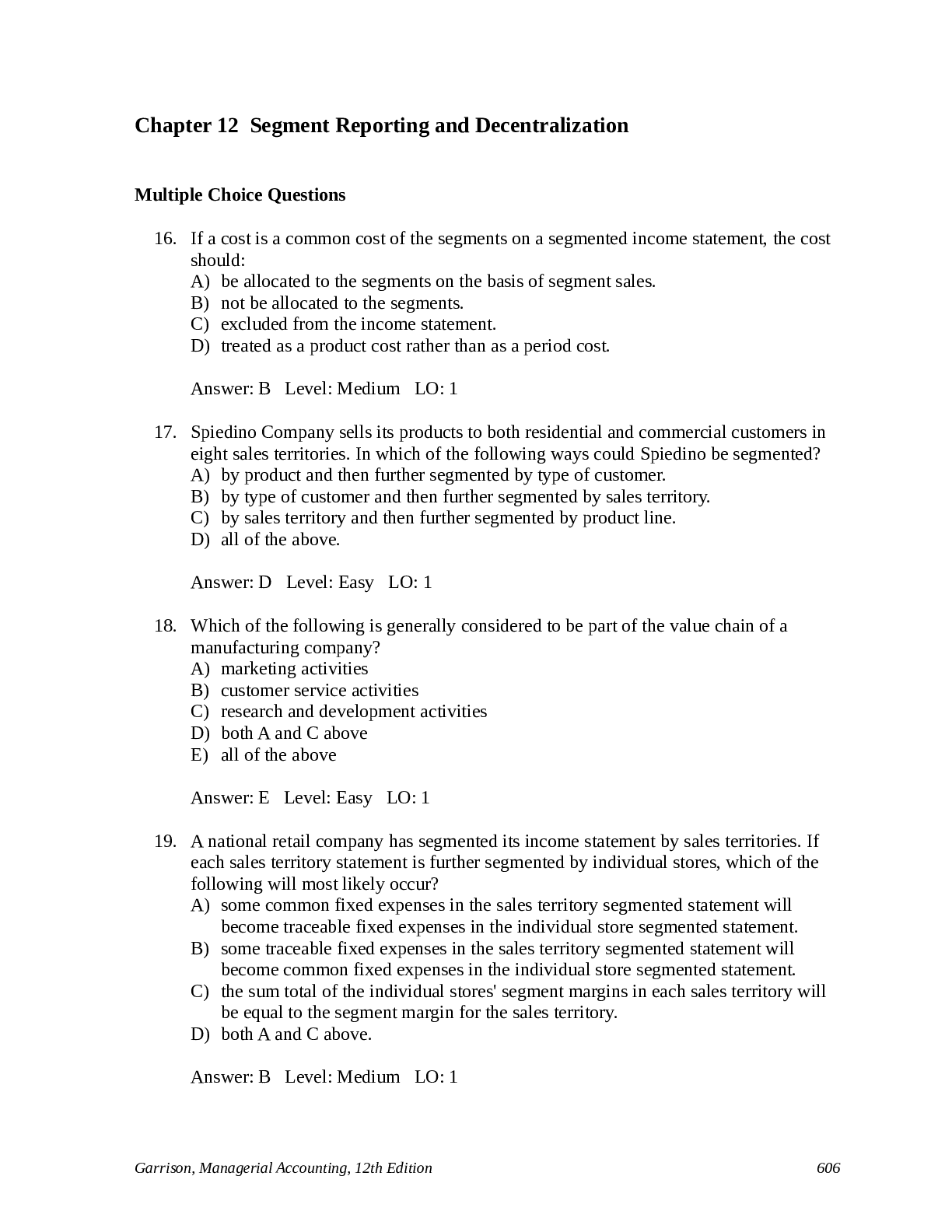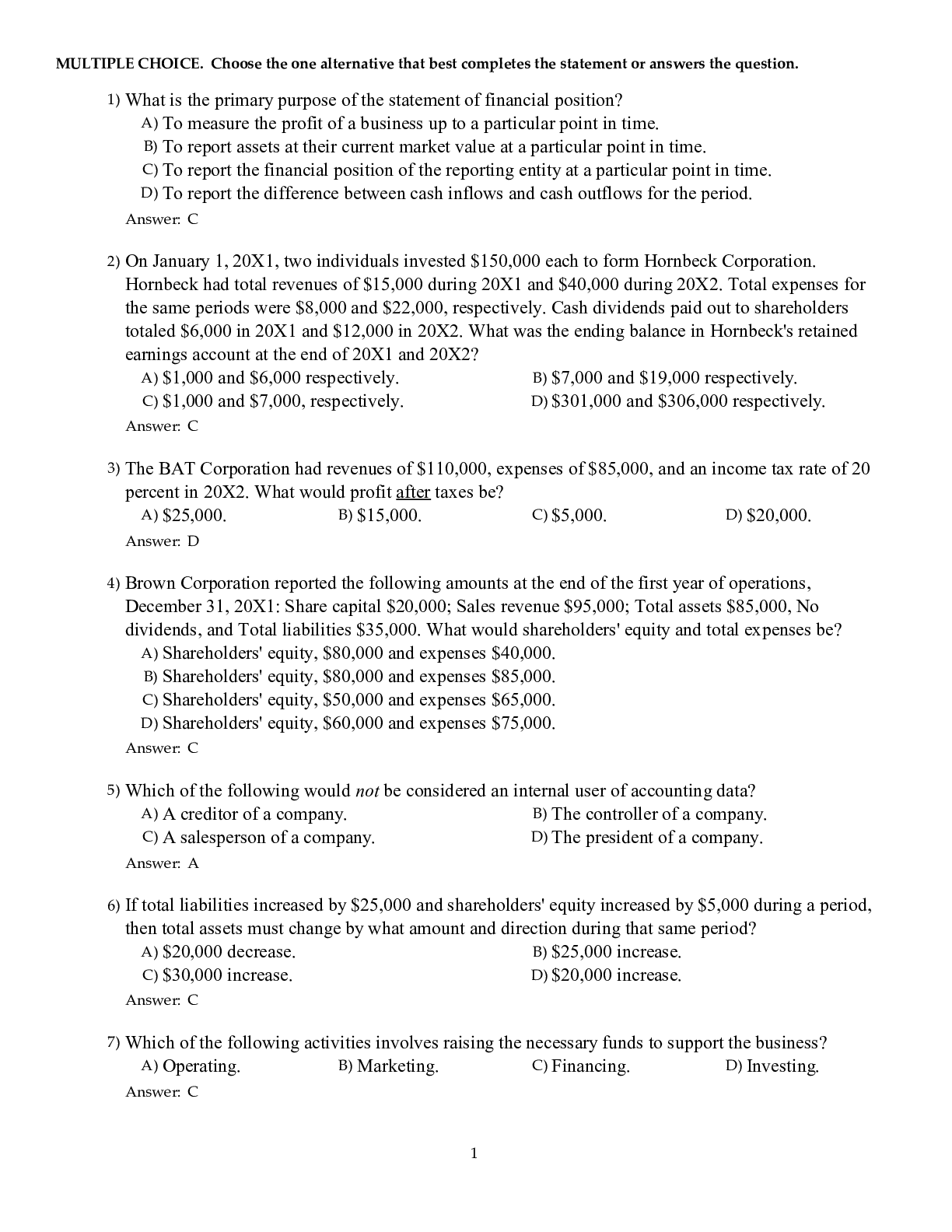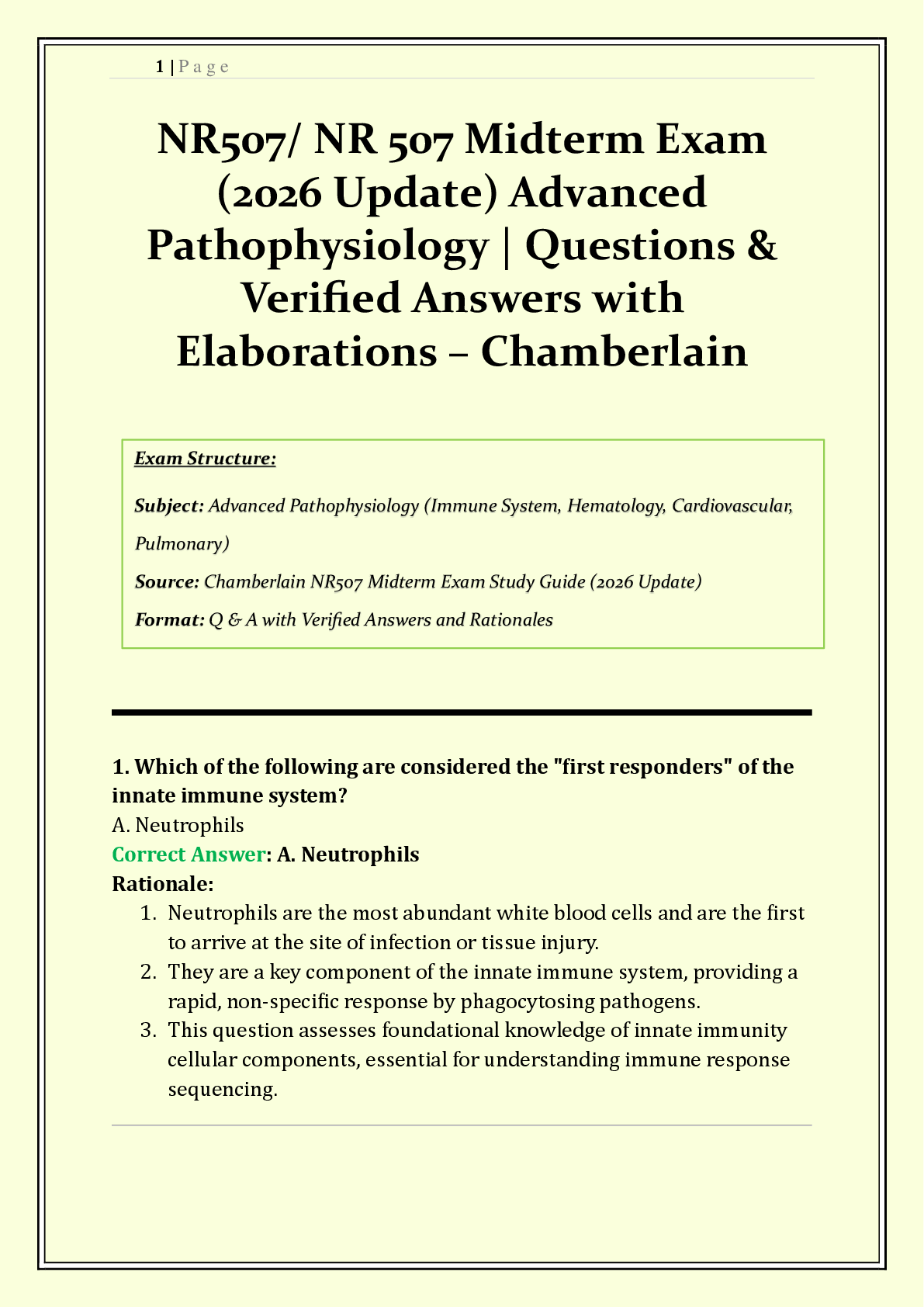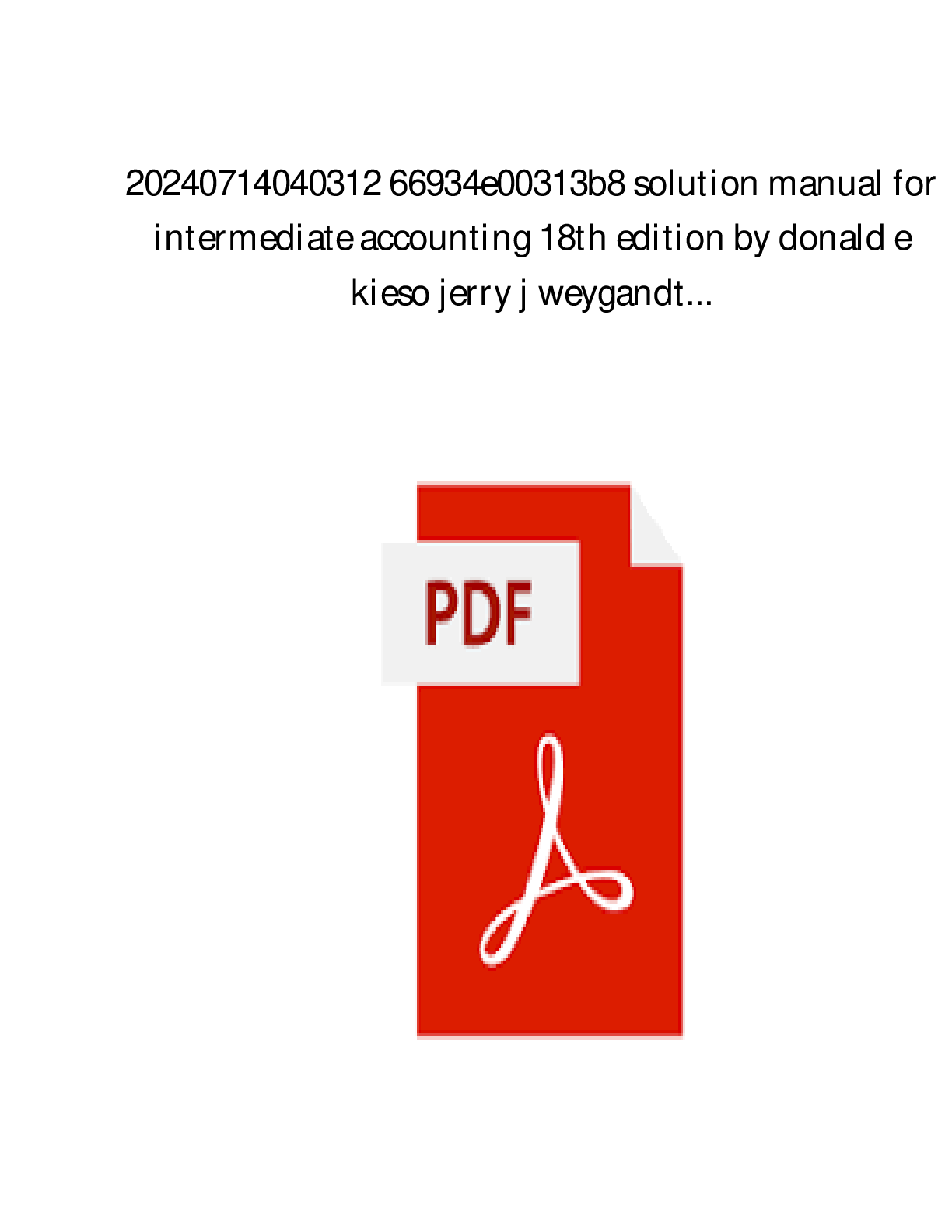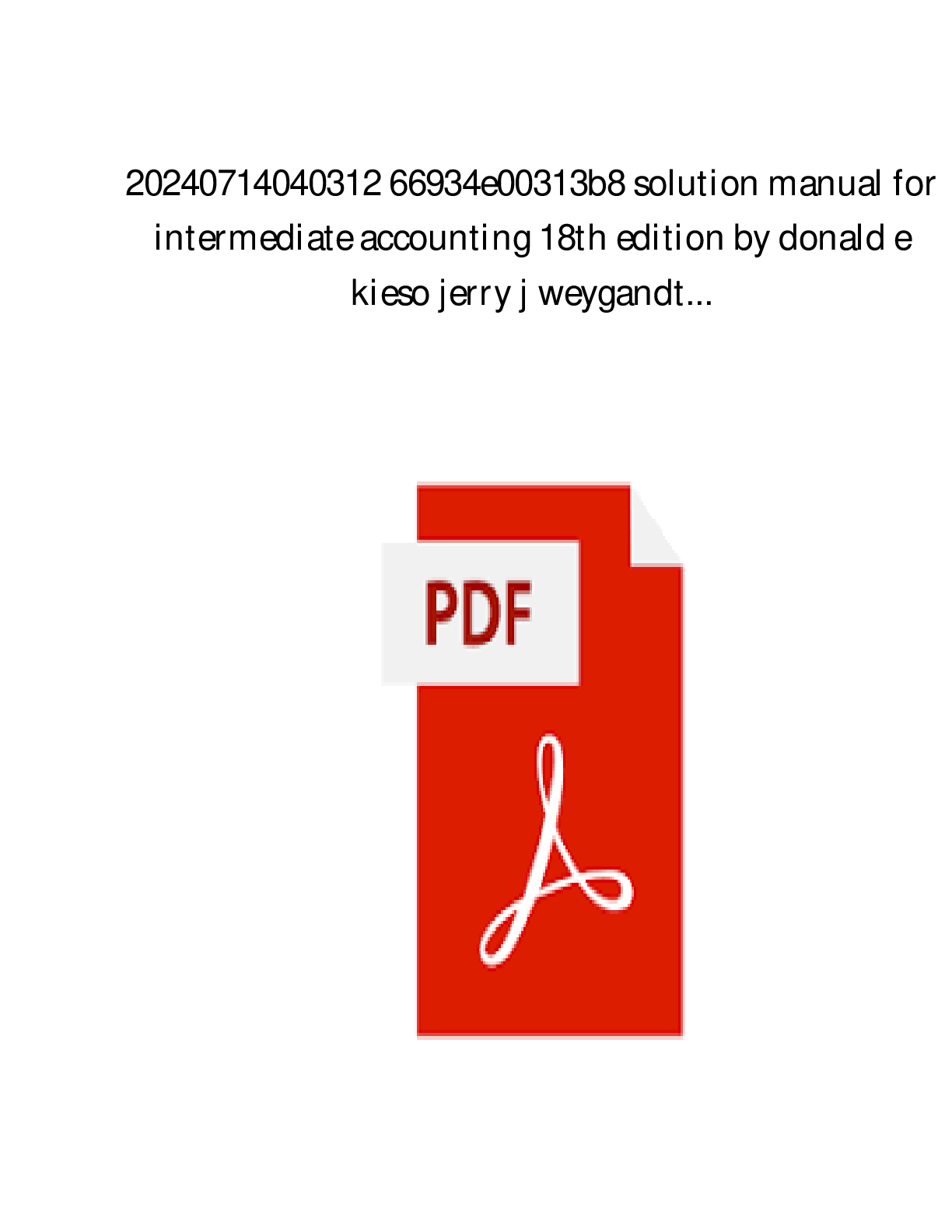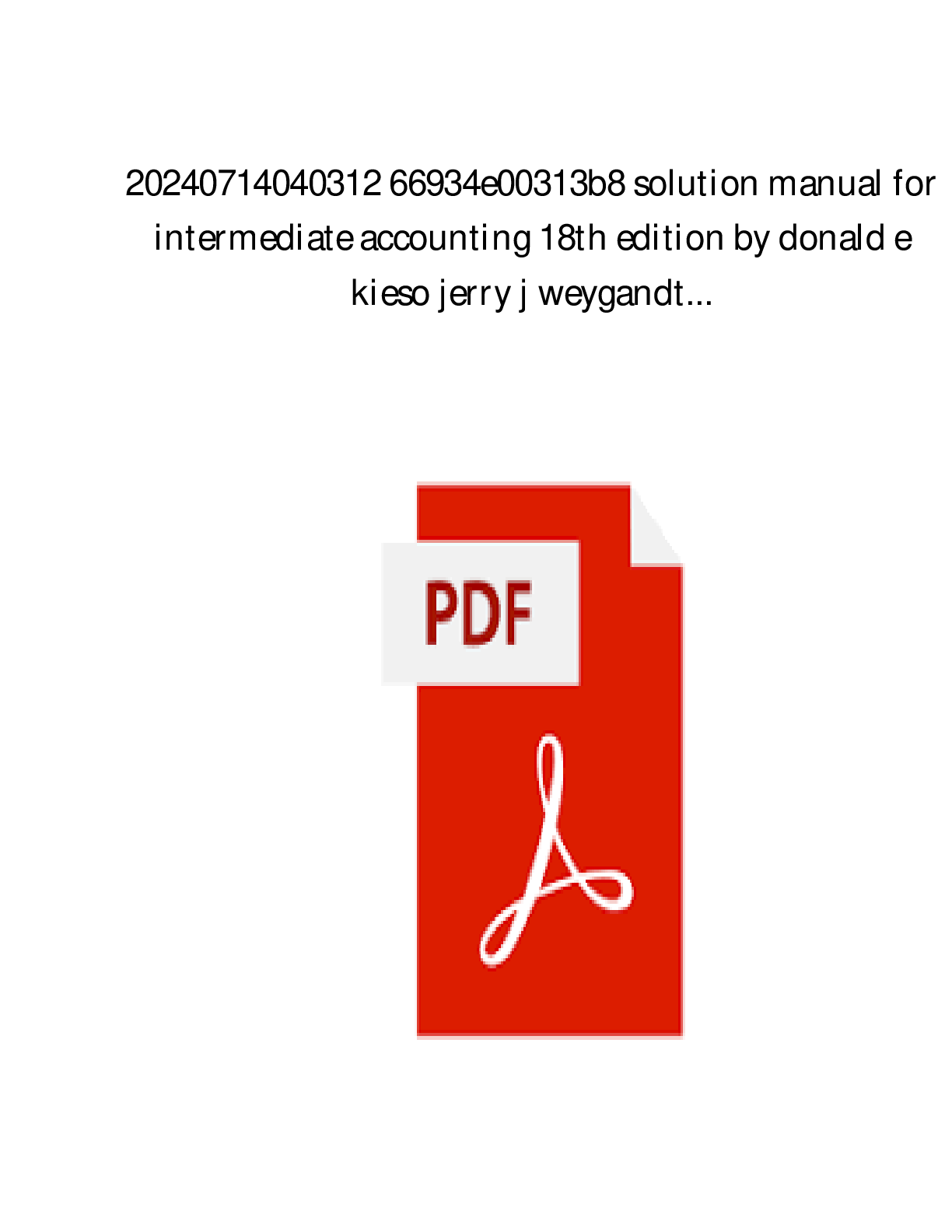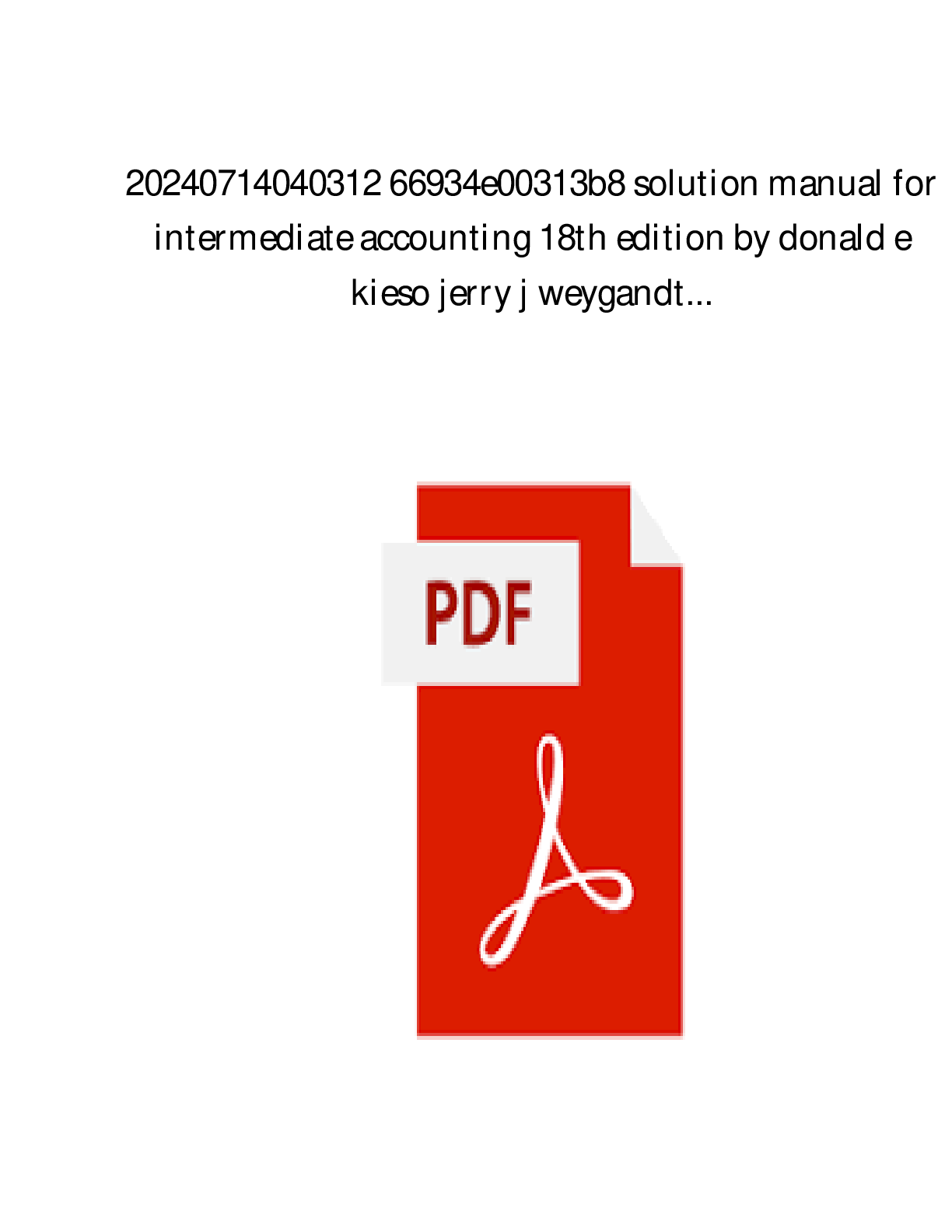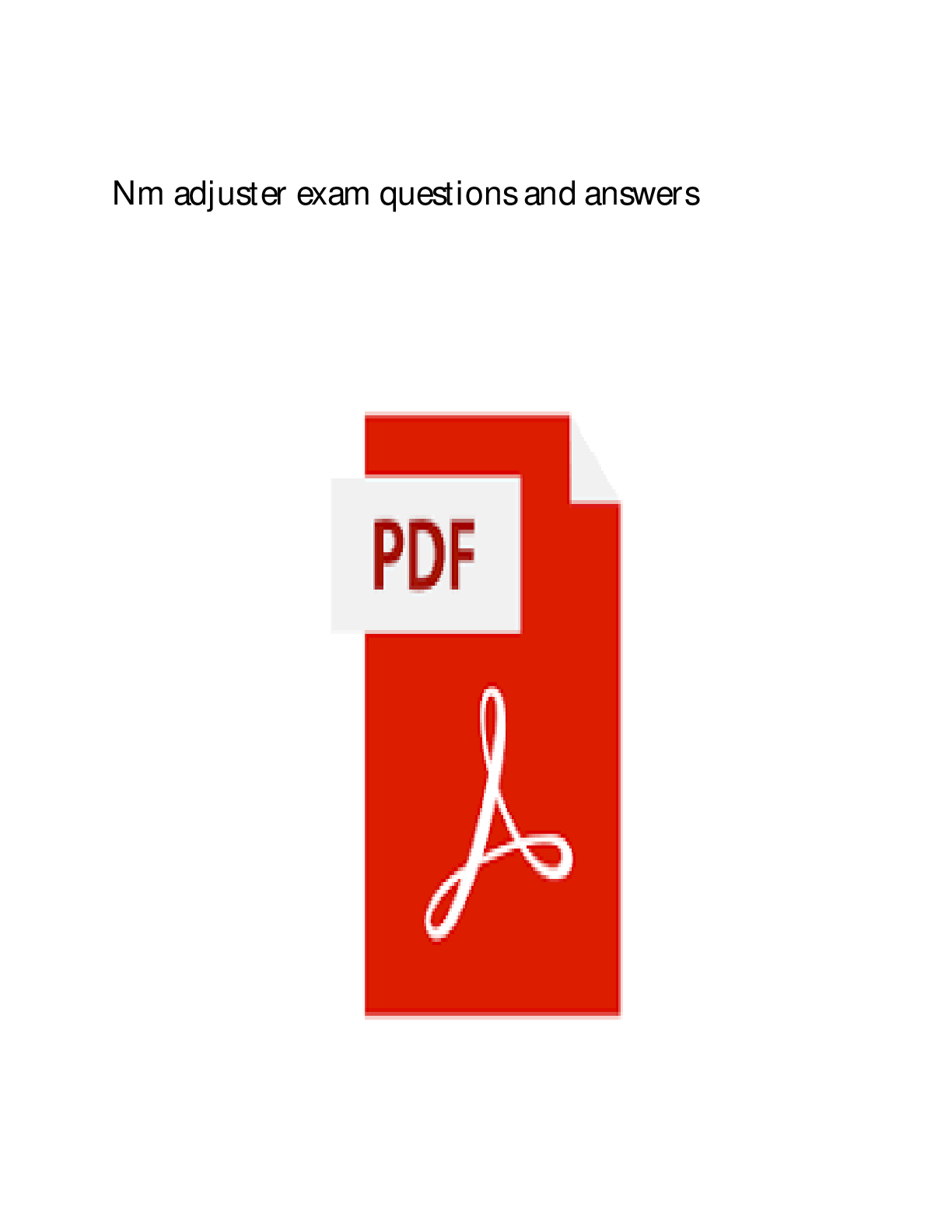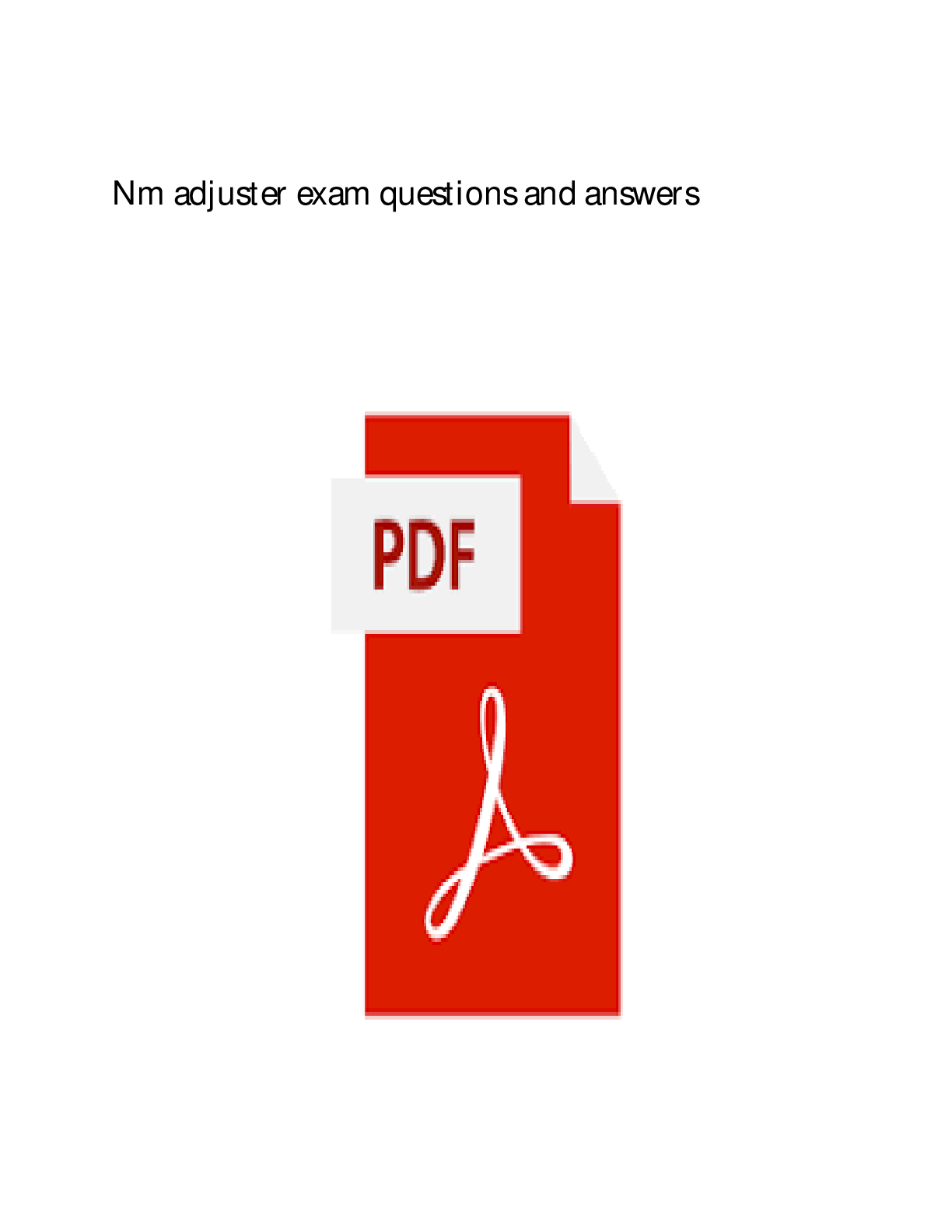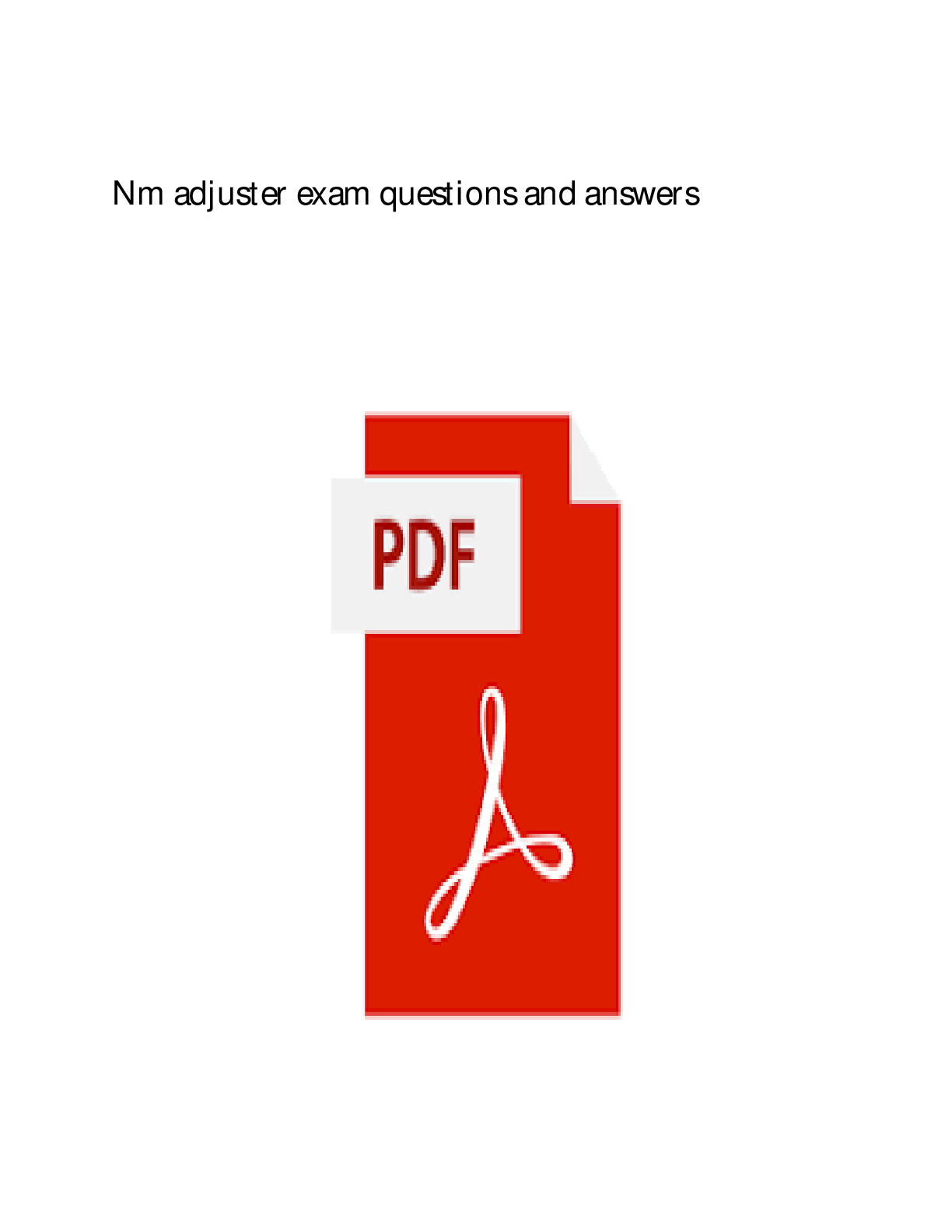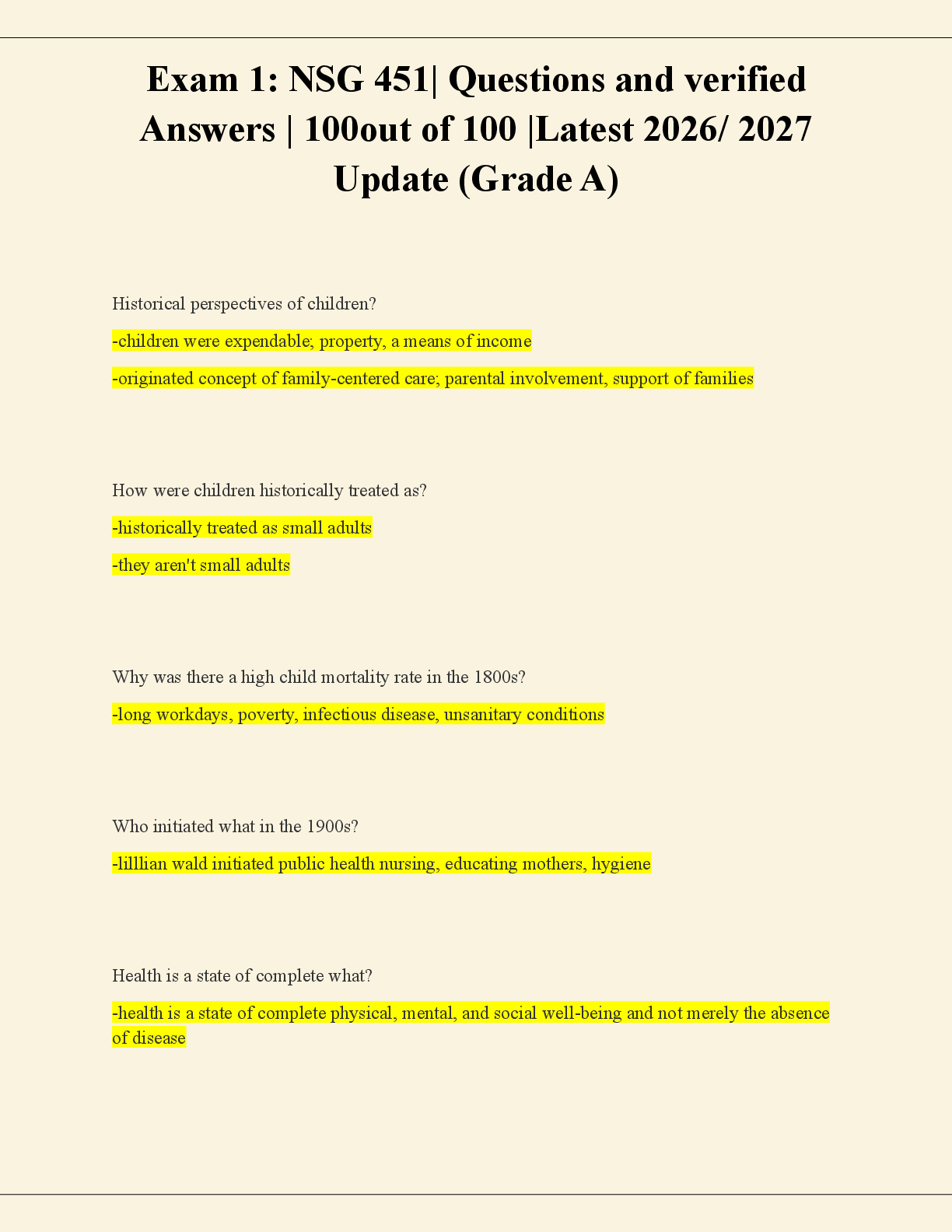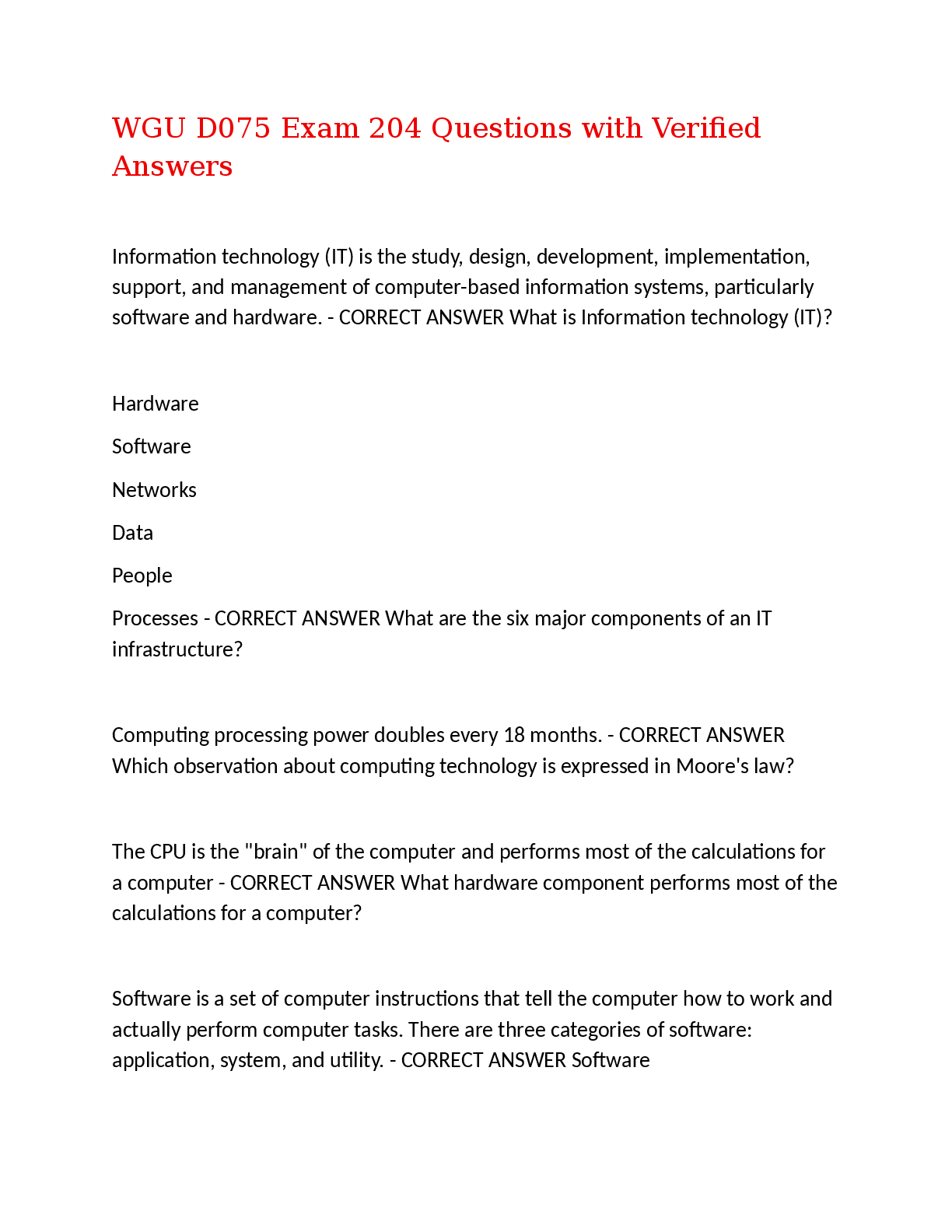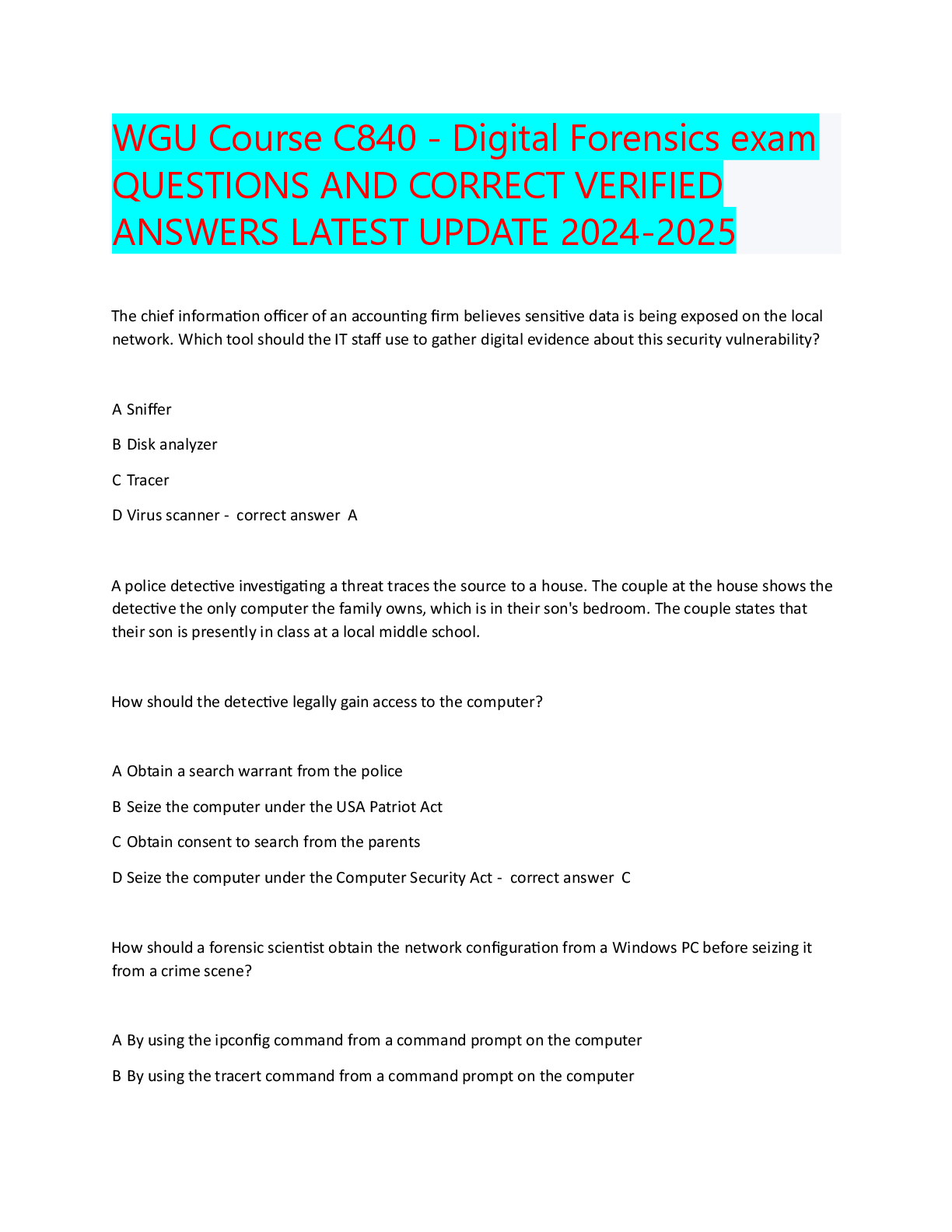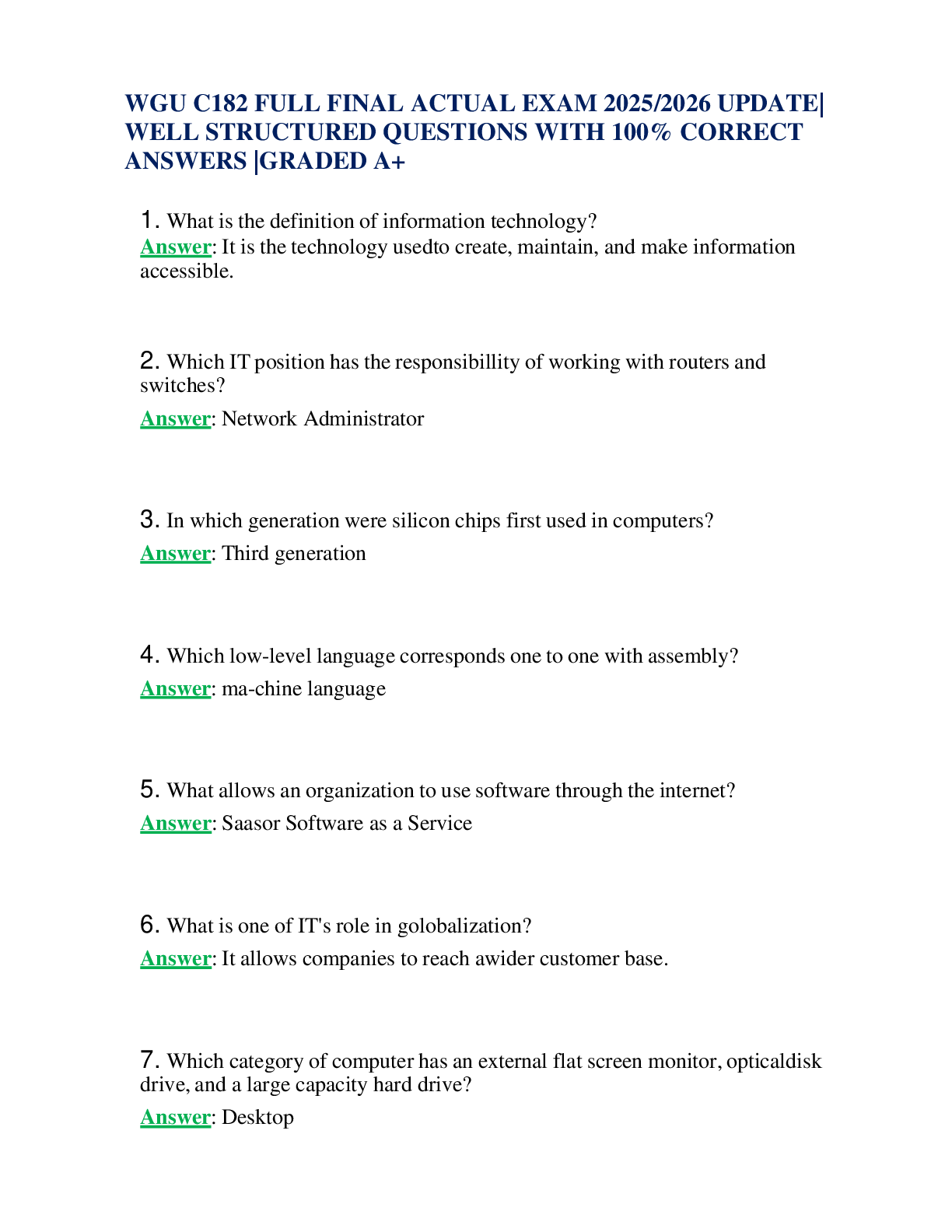GOVERNMENT ACCOUNTING
1. One of the following is not considered government income.
(a) proceeds from loans and borrowings
(b)government buildings
(c) grants and aids received from foreign governments
(d) taxes
2. W
...
GOVERNMENT ACCOUNTING
1. One of the following is not considered government income.
(a) proceeds from loans and borrowings
(b)government buildings
(c) grants and aids received from foreign governments
(d) taxes
2. What are the books of accounts in the government?
(a) books of COA
(b) books of COA and books of treasury
(c) books of COA and books of agency
(d)books of COA, books of treasury and books of agency
3. Which is incorrect concerning government accounting?
(a) Laws, rules and regulations guide the accounting procedure for
government accounting.
(b) Depreciation is taken up regularly in government accounting.
(c) The use of corollary entry is not adopted.
(d)In government accounting, emphasis is on fair presentation,
so that reports are stated as “opinion”.
4. The objectives of government accounting include (choose the incorrect
one):
(a) to report on the financial position and results of operations of
government agencies
(b) to provide for control of the acts of public bodies and offices in the
receipt, disposition, and utilization of funds and property
(c) to provide information concerning past and present operations and
to provide a guidance for future operations
(d)to present fairly the financial position, performance and
cash flows of government-owned corporations
5. This consists of money and resources of the local government which
are available for the payment of expenditures, obligations or purposes
not specifically declared by law as accruing and chargeable to, or
payable from, any other fund.
(a)general fund (c) special education
fund
(b) trust fund (d) depository fund
6. What is the role of the Bureau of Treasury in relation to government
accounting responsibility?
(a)to receive and keep national funds and manage or control
disbursements thereof
(b) to design, prepare, and approve the accounting systems of
government agencies
(c) to keep the general accounts of the national government
(d) to prepare the annual financial report of the national government,
its instrumentalities and government-owned or controlled
corporations
7. It represents all funds received by the government from taxes, grants,
aids and borrowings.
(a)government income (c) cash fund
(b) government revenue (d) borrowings
8. In government accounting, the control accounts for revenue and
expenditures are found in:
(a)the budget and operations account
(b) both the balance sheet and budget and operations account
(c) national clearing accounts
(d) balance sheet accounts
9. He is principally responsible for the fiscal administration of the local
government.
(a)local chief executive (c) provincial treasurer
(b) municipal accountant (d) commission on audit
10.The main concern is availability and use of funds for public services.
(a) Commission on Audit (c) National Treasury
(b) Department of Finance (d) National Budget
System
11.Which department prepares the national budget which serves as the
basis of the general appropriation law?
(a)Executive department (c) Judiciary department
(b) Legislative department (d) Each government agency
12.Which is not charged with the government accounting responsibility?
(a) Commission on Audit (c) Bureau of Treasury
(b) Department of Budget and Management (d) Legislative
Department
13.Budget accountability includes (choose the incorrect one):
(a) safeguarding government resources
(b) adherence to legal requirements, administrative policies and
regulations, and efficiency and economy in operations
(c) results of government programs and activities are reflected in
accomplishments, benefits and effectiveness
(d)payment for misappropriated amount
14.Which is an ordinary income?
(a)Tax (c) Repayment of advances
(b) Grant or aid from foreign country (d) Loan or borrowing
15.It is an appropriation which does not require periodic legislative action
and referred to as “automatic appropriation”.
(a)standing appropriation (c) supplemental
appropriation
(b) special appropriation (d) contingent
appropriation
16.It is an amount committed to be paid by the government arising from
an act of a duly authorized administrative officer and which binds the
government to the immediate and eventual payment of money.
(a)obligation (c) allotment
(b) appropriation (d) commitment
17.Which government body keeps the general account of government,
promulgates accounting rules and regulation, and submits to the
President and Congress an annual financial report of the government?
(a)Commission on Audit
(b) Department of Budget and Management
(c) Bureau of Treasury
(d) Department of Finance
18.This is a sum of money or other government resources set aside for the
purpose of carrying out specific activities or attaining certain
objectives in accordance with specific regulations, restrictions, or
limitations, and constitute an independent fiscal and accounting entity.
(a) cash disbursement ceiling (c) fund
(b) appropriations (d) budget
19.In government accounting, it is not correct:
(a) to regularly take up depreciation.
(b)to adopt a combination of the cash basis and accrual basis.
(c) to correct a debit error by a debit entry but in the negative.
(d) to emphasize on correctness, so reports are “certified correct”.
20.The functions and activities necessary for the performance of a major
purpose for which a government entity is established.
(a)program (c) resources
(b) project (d) internal control
21.It is a list of ledger accounts prescribed by COA for use of the national
government, local government and government-owned or controlled
corporations except financial institutions.
(a)standard government chart of accounts (c) balance sheet
(b) chart of accounts (d) statement of operations
22.No money shall be paid out of the National Treasury except in
pursuance of an appropriation law. This explicitly describes what
salient feature of government accounting?
(a) fund accounting (c) obligation accounting
(b) budgetary accounting (d) treasury disbursement coding
system
23.Who may contract or guarantee foreign loans on behalf of the Republic
of the Philippines with the prior concurrence of the Monetary Board and
subject to such limitations as may be provided by law?
(a)President of the Republic of the Philippines
(b) President of the Senate
(c) Speaker of the House of Representatives
(d) Chief Justice of the Supreme Court
24.No money shall be paid out of the National Treasury except in
pursuance of:
(a)appropriation (c) obligation
(b) allotment (d) special executive order
25.It is the government control mechanism which provides for the
maximum amount which an agency can commit the resources of the
government.
(a) fund accounting (c) budgetary accounting
(b) obligation accounting (d) accounting system
26.It is the authorization from the Department of Budget and Management
to any agency to incur obligation up to a specified amount that must
be within the legislative appropriation.
(a) obligation (c) allotment
(b) appropriation (d) fund release
27.Which is false concerning constitutional provisions related to
government budgeting?
(a) No law shall be passed authorizing any transfer of appropriation.
(b)All money collected or any tax levied for a special purpose
may be paid out for any public purpose.
(c) Discretionary funds appropriated for particular officials shall be
distributed only for public purposes.
(d) No money shall be appropriated for any sect, church or
denomination.
28. A feature of government accounting that provides uniform accounting
for incurring and liquidating obligations. The books used in this phase
of accounting are the general journal and analysis of obligations, the
journal of disbursements by disbursing officers, the journal of warrants
issued and the journal of checks issued.
(a)obligation accounting system (c) budgetary system
(b) advice of allotment (d) obligation incurred
29.This financial statement is submitted by government accounting to
Commission on Audit. It shows the excess (deficit) of income over
expenditures for the fiscal period then ended.
(a) statement of changes in financial position
(b) preliminary trial balance
(c)statement of operations
(d) final trial balance
30.Government accounting and commercial accounting are similar in the
following, except:
(a) Double entry basis (c) Periodic financial reports and
statements
(b) Books of original entry (d) Basis of accounting
31.One of the following is not considered government income:
(a) proceeds from loans and borrowings
(b)government buildings
(c) grants and aids received from foreign governments
(d) taxes
32.This financial statement is submitted by government accounting to the
Commission on Audit. It shows the excess (deficit) of income over
expenditures for the fiscal period then ended.
(a) statement of changes in financial position
(b) preliminary trial balance
(c)statement of operations
(d) final trial balance
33.What are the rules on the use of government funds?
(a) no obligations shall exceed allotment
(b) no liquidation shall exceed obligation
(c) no allotment shall exceed appropriation
(d)all of these
34.These are the subsidiary ledger accounts showing the details of income
and expenditures.
(a) balance sheet accounts (c) subsidiary ledger accounts
(b)budget and operation accounts (d) statement of operations
accounts
35.Which is not a fundamental principle of government fiscal operations?
(a) Fiscal responsibility shall, to a greater extent, be shared by all those
exercising authority over financial affairs, transactions, and
operations of the government agency.
(b) Claims against government funds shall be supported with complete
documentation.
(c) All laws and regulations applicable to financial transactions shall be
faithfully adhered to.
(d)Generally accepted accounting principles must be observed
in recording government financial transactions.
36.Congressional authorization in the form of law to make payment out of
the public treasury for specific purposes after compliance with certain
conditions is known as:
(a)appropriation (c) budgeting
(b) allotment (d) obligation
37.The process of analyzing, classifying, summarizing and communicating
all transactions involving the receipt and disposition of government
funds and property and interpreting the results thereof is:
(a) government fiscal administration (c) government
accounting
(b) budgetary accounting (d) obligation accounting
38.Which is not a characteristic of the local government accounting
system?
(a) The fundamental principles of government fiscal operations
governing the national government are also applicable to the local
government.
(b)The local government is not required to formulate its
budget for the fiscal year.
(c) The local government follows the standard government chart of
accounts.
(d) The fundamental accounting principles and procedures observed by
the local government do not differ from those adopted by the
national government.
39.It is the trial balance prepared after the adjusting and closing entries
have been posted.
Preliminary Final Preliminary Final
(a) Yes Yes (c) No Yes
(b) Yes No (d) No No
40.A feature of government accounting that provides for the ceiling or
maximum amount an agency can spend or incur in the performance of
its functions is known as:
(a) budgetary accounting (c) obligation accounting
(b) responsibility accounting (d) fund accounting
41.One of the following is not considered government income.
(a) proceeds from loans and borrowings
(b)government buildings
(c) grants and aids received from foreign governments
(d) taxes
42.The generally accepted accounting principles also apply to:
(a) the Board of Accountancy (c) The Philippine Institute of CPAs
(b) the Bureau of Internal Revenue (d)The Professional
Regulation Commission
43.A feature of government accounting that provides for the ceiling or
maximum amount an agency can spend or incur in the performance of
its functions is known as:
(a) budgetary accounting (c) obligation accounting
(b) responsibility accounting (d) fund accounting
44.The Philippine Constitution provides that:
(a)where there occurs a budget deficit, the President of the
Philippines shall have the power to levy and impose taxes in
order to meet the deficit.
(b) GAAP as well as sound management and fiscal administration shall
be observed in the utilization of government funds, provided they
do not contravene existing laws and regulations.
(c) the local chief executive is principally responsible for the fiscal
administration of the local government.
(d)the Congress may not increase the appropriations
recommended by the President of the Philippines for the
operation of the Government as specified in the budget.
45.In government accounting, the control accounts for revenue and
expenditures are found in:
(a)the budget and operation accounts
(b) both the balance sheet and budget and operation accounts
(c) national clearing accounts
(d) the balance sheet accounts
46.Congressional authorization in the form of law to make payment out of
the public treasury for specific purposes after compliance with certain
conditions is known as:
(a) appropriation (c) budgeting
(b) allotment (d) obligation
47.The process of analyzing, classifying, summarizing and communicating
all transactions involving the receipt and disposition of government
funds and property and interpreting the results thereof is:
(a) government fiscal administration (c) government
accounting
(b) budgetary accounting (d) obligation accounting
48.It is applied in the preparation of the national budget where the total
estimated revenue must be more than estimated expenditures.
(a) balanced budget (c) special budget
(b) supplemental budget (d) performance budget
49.Which government body prepares the annual financial statements of
the national government, local government agencies and governmentowned or controlled corporations?
(a)Commission on Audit
(b) Department of Budget and Management
(c) Bureau of Treasury
(d) Chief Accountant of each government agency
50.Which government body keeps the general account of government,
promulgates accounting rules and regulation, and submits to the
President and Congress an annual financial report of the government?
(a)Commission on Audit
(b) Department of Budget and Management
(c) Bureau of Treasury
(d) Department of Finance
51.It is the implementation of the national budget by the different
departments and release of allotments.
(a) budget preparation (c) budget execution
(b) budget authorization (d) budget
accountability
52.This is a sum of money or other government resources set aside for the
purpose of carrying out specific activities or attaining certain
objectives in accordance with specific regulations, restrictions, or
limitations, and constitute an independent fiscal and accounting entity.
(a) cash disbursement ceiling (c) fund
(b) appropriations (d) budget
53. Which is incorrect concerning government accounting?
(a)Government accounting adopts either cash or accrual basis
of accounting.
(b) Depreciation is not taken up regularly in government accounting.
(c) In government accounting, errors are corrected by negative entries.
(d) A corollary entry arises form the operation of obligation accounting
in connection with, among others, inventories, supplies and
materials, fixed assets and long-term investments.
54.In government accounting, it is not correct:
(a) to regularly take up depreciation.
(b)to adopt a combination of the cash basis and accrual basis.
(c) to correct a debit error by a debit entry but in the negative.
(d) to emphasize on correctness, so reports are “certified correct”.
55.No money shall be paid out of the National Treasury except in
pursuance of an appropriation law. This explicitly describes what
salient feature of government accounting?
(a) fund accounting (c) obligation accounting
(b) budgetary accounting (d) treasury disbursement coding system
56.Who may contract or guarantee foreign loans on behalf of the Republic
of the Philippines with the prior concurrence of the Monetary Board and
subject to such limitations as may be provided by law?
(a)President of the Republic of the Philippines
(b) President of the Senate
(c) Speaker of the House of Representatives
(d) Chief Justice of the Supreme Court
57.Which prepares the annual financial report of the government?
(a) Commission on Audit (c) Bureau of Treasury
(b) Department of Budget and Management (d) All of the above
58.No money shall be paid out of the National Treasury except in
pursuance of:
(a)appropriation (c) obligation
(b) allotment (d) special executive order
59.It is the government control mechanism which provides for the
maximum amount which an agency can commit the resources of the
government.
(a) fund accounting (c) budgetary accounting
(b) obligation accounting (d) accounting system
60.Which is responsible for the design, preparation and approval of
accounting systems of government agencies?
(a) Department of Budget and Management (c) Commission
on Audit
(b) Bureau of Treasury (d) Government agency
61.It is the authorization from the Department of Budget and Management
to any agency to incur obligation up to a specified amount that must
be within the legislative appropriation.
(a) obligation (c) allotment
(b) appropriation (d) fund release
62. The review and approval of the national budget by the Congress of the
Philippines and the formulation of an appropriate bill.
(a) authorization (c) execution
(b) preparation (d) accountability
63.One of the following is not considered government income:
(a) proceeds from loans and borrowings
(b)government buildings
(c) grants and aids received from foreign governments
(d) taxes
64.This financial statement is submitted by government accounting to the
Commission on Audit. It shows the excess (deficit) of income over
expenditures for the fiscal period then ended.
(a) statement of changes in financial position
(b) preliminary trial balance
(c)statement of operations
(d) final trial balance
65.Which is responsible for the design, preparation and approval of
accounting systems of government agencies?
(a)Department of Budget and Management
(b) Commission on Audit
(c) Bureau of Treasury
(d) The government agency concerned
66.Financial plan for the general expenditures of the government
agencies.
(a) special budget (c) supplemental budget
(b) deficiency budget (d) general budget
67.What are the rules on the use of government funds?
(a) no obligations shall exceed allotment (c) no allotment shall exceed
appropriation
(b) no liquidation shall exceed obligation (d) all of these
68.Congressional authorization in the form of a law to make payments out
of the public treasury for specific purposes after compliance with
certain conditions.
(a)appropriation (c) budgeting
(b) allotment (d) obligation
69.State accounting and accounting for business enterprises are different
from each other in which of the following aspects?
I. Basis of accounting
II. Establishing and observance of internal control system
III. Objective
(a) I and II only (b) III and IV only(c) I, II and IV (d) I, II,
III, IV
70.Which is false concerning constitutional provisions related to
government budgeting?
(a) No law shall be passed authorizing any transfer of appropriation.
(b)All money collected or any tax levied for a special purpose
may be paid out for any public purpose.
(c) Discretionary funds appropriated for particular officials shall be
distributed only for public purposes.
(d) No money shall be appropriated for any sect, church or
denomination.
71. A feature of government accounting that provides uniform accounting
for incurring and liquidating obligations. The books used in this phase
of accounting are the general journal and analysis of obligations, the
journal of disbursements by disbursing officers, the journal of warrants
issued and the journal of checks issued.
(a)obligation accounting system (c) budgetary system
(b) advice of allotment (d) obligation incurred
72.This consists of money and resources of the local government which
are available for the payment of expenditures, obligations or purposes
not specifically declared by law as accruing and chargeable to, or
payable from, any other fund.
(a) general fund (c) special education fund
(b) trust fund (d) depository fund
73.What is the role of the Bureau of Treasury in relation to government
accounting responsibility?
(a)to receive and keep national funds and manage or control
disbursements thereof
(b) to design, prepare, and approve the accounting systems of
government agencies
(c) to keep the general accounts of the national government
(d) to prepare the annual financial report of the national government,
its instrumentalities and government-owned or controlled
corporations
74.What is not an accounting responsibility of department agencies?
(a) to maintain and keep current accounts of the agency
(b) to advise on the financial status of appropriations and allotments
(c) to develop and conduct procedures designed to meet the needs of
management
(d)to prepare the annual financial report of the national
government, its instrumentalities and government-owned or
controlled corporations
75.It represents all funds received by the government from taxes, grants,
aids and borrowings.
(a)government income (c) cash fund
(b) government revenue (d) borrowings
76.An authorization by the Department of Budget and Management to the
head of a government agency to incur obligations within a specified
amount pursuant to an appropriation.
(a) continuing operations (c) allotment
(b) current operating expenditures (d) obligation
77.In government accounting, the control accounts for revenue and
expenditures are found in:
(a)the budget and operations account
(b) both the balance sheet and budget and operations account
(c) national clearing accounts
(d) balance sheet accounts
78.One of the following is not considered government income.
(a) proceeds from loans and borrowings
(b)government buildings
(c) grants and aids received from foreign government
(d) taxes
79.Expenditures in the government are broadly classified into:
(a)current operating expenditures and capital outlays
(b) obligations incurred and obligations liquidation
(c) capital outlays only
(d) current operating expenditures only
80.He is principally responsible for the fiscal administration of the local
government.
(a)local chief executive (c) provincial treasurer
(b) municipal accountant (d) commission on audit
81.This financial statement is submitted by government accounting to
Commission on Audit. It shows the excess (deficit) of income over
expenditures for the fiscal period then ended.
(a) statement of changes in financial position
(b) preliminary trial balance
(c)statement of operations
(d) final trial balance
82.Which is incorrect concerning characteristics of government
accounting?
(a) The primary emphasis on government accounting is receipt and
disposition of government funds and property.
(b) Common stock and other capital accounts do not exist in
government accounting.
(c) State accounting must conform with specific laws, rules and
regulations.
(d)Government accounting deals only with the financial
management of the national government.
83.Government accounting and commercial accounting are similar in the
following, except:
(a) Double entry basis (c) Periodic financial reports and
statements
(b) Books of original entry (d) Basis of accounting
84.What are the books of accounts in the government?
(a) books of COA
(b) books of COA and books of treasury
(c) books of COA and books of agency
(d)books of COA, books of treasury and books of agency
85.Which is incorrect concerning government accounting?
(a) Laws, rules and regulations guide the accounting procedure for
government accounting.
(b) Depreciation is taken up regularly in government accounting.
(c) The use of corollary entry is not adopted.
(d)In government accounting, emphasis is on fair presentation,
so that reports are stated as “opinion”.
86.The objectives of government accounting include (choose the incorrect
one):
(a) to report on the financial position and results of operations of
government agencies
(b) to provide for control of the acts of public bodies and offices in the
receipt, disposition, and utilization of funds and property
(c) to provide information concerning past and present operations and
to provide a guidance for future operations
(d)to present fairly the financial position, performance and
cash flows of government-owned corporations
87.It is the system of prescribing the procedures for recording
appropriations, allotments and obligations.
(a) fund accounting (c) obligation accounting
(b)budgetary accounting (d) government auditing
88.The main concern is availability and use of funds for public services.
(a) Commission on Audit (c) National Treasury
(b) Department of Finance (d) National Budget
System
89.Which department prepares the national budget which serves as the
basis of the general appropriation law?
(a)Executive department (c) Judiciary department
(b) Legislative department (d) Each government agency
90.It is a statement of estimated receipts and estimated expenses of the
government which serves as basis for a general appropriation bill.
(a)National government budget (c) Statement of financial
position
(b) Local government budget (d) Statement of operations
91.It denotes the responsibility to others that one or more persons have
for their actions and behaviors.
(a) preparation (c) authorization
(b)accountability (d) execution
92.Budget accountability includes (choose the incorrect one):
(a) safeguarding government resources
(b) adherence to legal requirements, administrative policies and
regulations, and efficiency and economy in operations
(c) results of government programs and activities are reflected in
accomplishments, benefits and effectiveness
(d)payment for misappropriated amount
93.Cash and other resources of the government which are available for
any purpose and which are not by law or contractual agreement
specifically designation to another fund.
(a)general fund (c) trust or fiduciary
fund
(b) special fund (d) depository fund
94.Which is not charged with the government accounting responsibility?
(a) Commission on Audit (c) Bureau of Treasury
(b) Department of Budget and Management (d) Legislative
Department
95.Which is an ordinary income?
(a)Tax (c) Repayment of advances
(b) Grant or aid from foreign country (d) Loan or borrowing
96.It is an appropriation for incurring obligations only during a specified
fiscal year usually one year.
(a)annual appropriation (c) multi-year
appropriation
(b) continuing appropriation (d) no-year appropriation
97.It is an appropriation which does not require periodic legislative action
and referred to as “automatic appropriation”.
(a)standing appropriation (c) supplemental
appropriation
(b) special appropriation (d) contingent
appropriation
98.It is an appropriation to cover deficit or overdraft incurred over the
amount originally authorized.
(a)deficiency appropriation (c) indefinite
appropriation
(b) definite appropriation (d) interim appropriation
99.It is an amount committed to be paid by the government arising from
an act of a duly authorized administrative officer and which binds the
government to the immediate and eventual payment of money.
(a)obligation (c) allotment
(b) appropriation (d) commitment
100. The services, products, or benefits accruing to the public are known
in the budget process as:
(a)expected results (c) project
(b) program (d) resources
101. The functions and activities necessary for the performance of a
major purpose for which a government entity is established.
(a) program (c) resources
(b) project (d) internal control
102. These are the appropriations for the purchase of goods and services
the benefits of which extend beyond the fiscal year and which add to
the assets of the government.
(a)capital outlays (c) obligations incurred
(b) current operating expenditures (d) obligations liquidated
103. It is a list of ledger accounts prescribed by COA for use of the
national government, local government and government-owned or
controlled corporations except financial institutions.
(a)standard government chart of accounts (c) balance sheet
(b) chart of accounts (d) statement of operations
104. These are the subsidiary ledger accounts showing the details of
income and expenditures.
(a) balance sheet accounts (c) subsidiary ledger accounts
(b) budget and operation accounts (d) statement of operations
accounts
105. It is the trial balance prepared after the adjusting and closing
entries have been posted.
Preliminary Final Preliminary Final
(a) Yes Yes (c) No Yes
(b) Yes No (d) No No
106. It is the financial statement prepared directly from the final trial
balance.
Statement of Balance Statement of Balance
operations sheet operations sheet
(a) Yes No (c) Yes Yes
(b) No Yes (d) NoNo
107. Which is not a fundamental principle of government fiscal
operations?
(a) Fiscal responsibility shall, to a greater extent, be shared by all those
exercising authority over financial affairs, transactions, and
operations of the government agency.
(b) Claims against government funds shall be supported with complete
documentation.
(c) All laws and regulations applicable to financial transactions shall be
faithfully adhered to.
(d)Generally accepted accounting principles must be observed
in recording government financial transactions.
108. Which is not a characteristic of the local government accounting
system?
(a) The fundamental principles of government fiscal operations
governing the national government are also applicable to the local
government.
(b)The local government is not required to formulate its
budget for the fiscal year.
(c) The local government follows the standard government chart of
accounts.
(d) The fundamental accounting principles and procedures observed by
the local government do not differ from those adopted by the
national government.
109. The following are the basic features and policies of the new
government accounting systems, except:
(a) A modified accrual basis of accounting shall be used except for
transactions where accrual basis is impractical or when other
methods are required by law.
(b) The one-fund concept shall be adopted. Separate fund accounting
shall be done only when specifically required by law or by a donor
agency or when otherwise necessitated by circumstances subject to
the approval of the Commission.
(c) Special accounts in the General Fund complete with subsidiary
ledgers shall be maintained for public utilities, contributions for
specific purposes, development projects funded, and such other
special accounts which may be created by law or ordinance.
(d)A new chart of accounts and coding structure with a twodigit account numbering system shall be adopted.
110. What are the books of accounts maintained by both national and
local agencies?
National Local National Local
(a)Journal & Ledger Journal & Ledger (c) Journal Journal
(b) Journal Ledger (d) Ledger
Journal
111. What are the set of financial statements to be prepared by the
National Agencies?
(a) (b) (c) (d)
Balance Sheet Yes Yes Yes No
Statement of Gov Equity Yes No No
Yes
Stat of Income & Expenses Yes Yes Yes No
Statement of Cash Flows Yes Yes No No
Notes to Financial Statements Yes Yes Yes
Yes
112. What are the set of financial statements to be prepared by the Local
Agencies?
(a) (b) (c) (d)
Balance Sheet Yes Yes Yes No
State of Government Equity Yes No No Yes
State of Income & Expenses Yes Yes Yes No
State of Cash Flows Yes Yes No No
Notes to Financial State Yes Yes Yes
Yes
113. The following are the basic features and policies of the new
government accounting systems, except:
(a) The receipt of Notice of Cash Allocation shall be recorded in the
books as debit to account “Cash-National Treasury, Modified
Disbursement Systems (MDS)” and credit to account “Subsidy
Income from National Government”.
(b) Obligation accounting modified to simplify procedures in the
incurrence and liquidation of obligations and the recording of the
budgetary accounts (allotments and obligations incurred and
liquidated).
(c)Cost of ending inventory of supplies and materials shall be
computed using the weighted average method.
(d) Supplies and materials purchased for inventory purpose shall be
recorded using the perpetual inventory system.
114. The following are the basic features and policies of the new
government accounting systems as to the treatment of depreciation,
except:
(a) The straight line method of depreciation shall be used.
(b)Depreciation shall start on the first month during the
purchase of property, plant and equipment, and residual
value equivalent to 10% of the purchase cost shall be set
up.
(c) Public infrastructures/ reforestation projects as well as serviceable
assets that are no longer being used shall not be charged any
depreciation.
(d) Serviceable assets no longer being used shall be reclassified to
“Other Assets” account and shall not be subject to depreciation.
115. The following are the basic features and policies of the new
government accounting systems, except:
(a) Whenever practical and appropriate, interest income and/ or
expense shall be accrued and recognized in the books of accounts.
(b) All borrowings and loans incurred shall be recorded to the
appropriate liability accounts.
(c)The use of corollary and negative journal entries shall be
continued.
(d) The petty cash fund shall not be used to purchase regular
inventory/ items for stock.
116. What registry shall be maintained by the Department of Budget and
Management for each department of the National Government to
control approved appropriations and allotments released?
(a) Registry of Notice of Cash Allocation and Replenishments
(b) Registry of Allotments and Obligations – Capital Outlay
(c)Registry of Appropriations and Allotments
(d) Registry of Allotments and Notice of Cash Allocation Issued
117. What registry shall be maintained by the Bureau of Treasury to
record the Notice of Cash Allocation releases and the bank
replenishments made to cover checks issued by agencies?
(a)Registry of Notice of Cash Allocation and Replenishments
(b) Registry of Allotments and Obligations – Capital Outlay
(c) Registry of Appropriations and Allotments
(d) Registry of Allotments and Notice of Cash Allocation Issued
118. What registry shall be maintained by the Department of Budget and
Management to control the funding of allotments?
(a) Registry of Notice of Cash Allocation and Replenishments
(b) Registry of Allotments and Obligations – Capital Outlay
(c) Registry of Appropriations and Allotments
(d) Registry of Allotments and Notice of Cash Allocation
Issued
119. The objectives NGAS include all of the following, except
a. To simplify government accounting and its eventual
computerization
b. To adopt a system that is conformity with Philippine Financial
Reporting Standards (PFRS)
c. To keep close tabs on erring officers that misappropriate
government funds
d. To generate periodic and relevant financial reports for better
monitoring of performance
120. It is the government body that keeps the general accounts of
the government and prepares the annual financial statement of the
national government, local government agencies and governmentowned or controlled operations (GOCCs)?
a. Commission on Audit c. Department of Budget and
Management
b. Bureau of Treasury d. Department of Finance
121. What are the components of the financial statements (FS)
under NGAS?
a. Balance sheet, statement of income and expenses and notes to
the FS
b. Balance sheet, statement of income and expenses and cash flow
statement
c. Balance sheet, statement of income and expenses and
statement of government equity
d. Balance sheet, statement of income and expenses, cash flow
statement, statement of government equity and notes to the FS
122. It is a system of prescribing the procedures for recording
appropriations, allotments and obligations.
a. Fund accounting c. Obligation accounting
b. Budgetary accounting d. Treasury disbursement coding
system
123. It is an authorization made by law or other legislative
enactment, directing payments of goods and services out
government funds under specified condition or for specific
purposes.
a. Allotment c. Appropriation
b. Obligation d. Malversation
124. It is the allotment by the Central office to its Regional office.
a. Regular allotment c. Ordinary Allotment
b. Suballotment d. Secondary Allotment
125. It refers to the commitment by a government agency arising
from an act of a duly authorized official that binds the government
to the immediate or eventual payments of a sum of money.
a. Allotment c. Appropriation
b. Obligation d. Malversation
126. It is an authorization issued by the DBM to government
agencies to withdraw cash from the National Treasury through the
issuance of Modified Disbursement System Checks.
a. Allotment c. Appropriation
b. Obligation d. Notice of Cash
Allocation
127. The following are the system followed in the NGAS, except
a. Commercial accounting c. Responsibility
accounting
b. Double-entry bookkeeping d. Fund accounting
128. Which is not a basic feature of NGAS?
a. One-fund concept c. Three-digit account number
system
b. Two-column trial balance d. Four-digit responsibility
account coding structure
129. Which is not a basic feature of NGAS?
a. Straight-line depreciation c. Corollary and negative
(red) entries
b. Allowance for doubtful accounts d. Perpetual inventory
system
130. This serves as the basis for recording transactions in the
general journal.
a. Journal Entry Voucher (JEV) c. Government bidding files
b. Source documents d. Government contractor form
131. Which of the following is not a Regular Agency Book?
a. General journal c. Cash Journal
b. General ledger d. Check disbursements journal
132. Under NGAS, supplies and materials purchased for inventory
purposes are recorded using
a. First-in, first-out(FIFO) c. Weighted average
b. Last-in, first-out (LIFO) d. Moving average
133. Once a government agency receives Notice of Cash
Allocation (NCA), it shall debit “ Cash-National Treasury, Modified
Disbursement System” and credit
a. NCA- Local Government c. Subsidy Income- Local
Government
b. NCA- National Government d. Subsidy Income- National
Government
134. Petty cash fund being maintained by government agencies
shall be maintained under
a. Fluctuating fund system c. Either of these
b. Imprest system d. Neither of these
135. Under NGAS, the standard residual value of depreciable
assets is equal to
a. 10% of cost c. P 1,000
b. Zero d. P 5,000
136. It represents all funds received by the government from
taxes, grants, aids and subsidies.
a. Government income c. Cash Fund
b. Government surplus d. Borrowing
137. What are the two major classification of government income?
a. National and Local income c. External and Internal trade
b. General and Specific income d. Any of these
138. Specific income accounts of the government include all of the
following, except
a. Taxes imposed on income c. Taxes on international
trade
b. Taxes imposed on properties d. Grants and donations
139. Which is not a major classification of government expenses?
a. Personal Services c. Selling and administrative
expenses
b. Financial expenses d. Maintenance & other operating
expenses
140. Personal services in government entities would normally
include
a. Advertising, rent, insurance and gasoline
b. Salaries, bonuses and allowances
c. Travels, training, seminar and telephone
d. Bank charges, interest and foreign currency exchange losses
141. These accounts are closed to the government equity account
at the end of the period.
a. Balance sheet accounts c. Guarantee deposit
b. Intermediate accounts d. Allowance for doubtful accounts
142. A government agency shall maintain which of the following
registries for allotments and obligations?
a.Registry of Allotments and Obligation- Personal Services (RAOPS)
b. Registry of Allotments and Obligation-Maintenance & Other
Operating Expenses (RAOMO) & Registry of Allotments and
Obligation- Financial Expense (RAOFE)
c. Registry of Allotments and Obligation-Capital Outlay (RAOCO)
d. All of the choices
143. In Controlling and monitoring the appropriations and
allotment, DBM shall maintain the following registries, except
a. Registry of Appropriation & Allotment (RAPAL)
b. Registry of Special Purpose Fund Appropriation (RESPFA)
c. Registry of Allotments & NCA (RANCA)
d. Registry of Notice of Cash Allocation and Replenishments
(RENREP)
144. This consists of cash and resources of the government that
are available for any purpose.
a. General fund c. Trust fund
b. Special fund d. Depository fund
145. Fund administered by government under a fiduciary
capacity is referred to as
a. General fund c. Trust fund
b. Special fund d. Depository fund
146. Which is (are) a special purpose fund created as required by
law by a donor agency?
a. Miscellaneous Personal Fund c. Organization Adjustment Fund
b. Calamity Fund d. All of the choices
147. Which is not a local government fund?
a. General fund c. Special education fund
b. Infrastructure fund d. Pork barrel fund
148. A local government fund that constitutes the annual
contribution from city or municipality in the amounts approved by
law for each barrio which is spent solely for community
development projects.
a. Infrastructure fund c. Trust fund
b. Special education fund d. Barrio development
fund
149. Disbursement of local funds must be approved by
a. Division head c. Accountant
b. Local administrator d. Local chief executive
[Show More]



